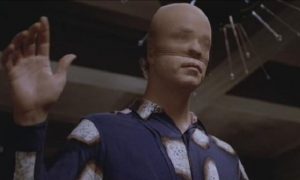One of the more unfortunate trends of the past decade or so is that amongst casting directors and film studios, the size of an actor’s social media footprint has become as important – if not more so for smaller roles – than actual acting ability.
It turns out it’s not just actors who are facing such a problem. A new feature piece over at THR goes into the pitfalls of directing a major movie these days and how things have worsened.
It has always been known that a talented auteur can so easily go to ‘movie jail’ if a film they’ve directed doesn’t perform well enough for executives who care only about the bottom-line.
But the market has shifted. Mid-budget & big-budget films are decidedly fewer these days, and those that are made are being overseen by studio executives more risk-averse than ever due to austerity measures, management upheaval and cinema’s post-pandemic struggles.
The result is “nonwriting directors are having a particularly difficult time” as higher-level talent are taking the studio assignments and up-and-coming directors are effectively boxed out from jumping over to studio films.
The part of the article that has spread like wildfire, however, is how review aggregator Rotten Tomatoes is now being used as a quantitative measurement to demote directors. One source tells the trade:
“Critical acclaim is now gamified. The Rotten Tomatoes score is the first thing people look at when I go pitch a director. It inevitably affects decision-making around hiring a director. When you hire a director, all you have is their past work and a meeting.”
Others point to how some of the biggest household name directors seem to have a free pass when it comes to delivering numerous flops without impacting their hiring ability.
Either way, this problem isn’t going away anytime soon.
The post Studios Consider Directors By RT Scores? appeared first on Dark Horizons.





